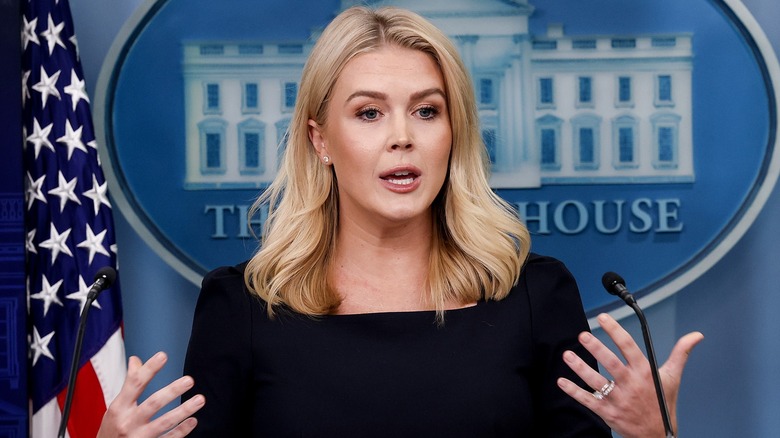Bad Bunny Sparks a Firestorm at Yankee Stadium: The Secret Behind His Action of 'Ignoring' God Bless America Will Shock You...ngocngoc

The Moment That Shook the Stadium
It was the seventh-inning stretch of the Yankees vs. Blue Jays playoff game—an American tradition charged with patriotism. The camera panned across the stands, catching celebrities and fans alike standing tall as the familiar anthem played.
But then, the lens found Bad Bunny.
He sat still. Sunglasses on. Expression unreadable.
When the jumbotron flashed his face, the stadium’s energy shifted from pride to confusion, then to chaos. Some fans
Within minutes, #BadBunny trended on X (formerly Twitter), and the headlines began:
“Bad Bunny Disrespects America?”
“Silent Protest or Publicity Stunt?”
“Hero or Hypocrite?”
The questions came faster than the replays.
Why It Hit So Hard
Bad Bunny isn’t just another pop star—he’s a cultural force. Born Benito Antonio Martínez Ocasio, he’s been the voice of a generation that questions authority, challenges tradition, and demands space for identity, race, and freedom.
But refusing to stand during “God Bless America”? That’s a different battlefield.
This isn’t the national anthem. It’s a song woven into the emotional DNA of post-9/11 America—a moment when sports, patriotism, and grief became one. To sit during it isn’t just a gesture. To many, it’s a statement.
And yet, he said nothing.
No tweet. No explanation. No apology.
The Silence That Speaks
What’s most fascinating—and infuriating—to many Americans is that Bad Bunny didn’t explain himself. He didn’t post a justification, no Instagram Story, no PR spin.
Maybe that’s the point.
In an era where every celebrity carefully scripts every word, Bad Bunny’s non-statement became a megaphone. It invited interpretation, division, and reflection.
Some saw it as an act of defiance—an echo of Colin Kaepernick’s kneel during the national anthem. Others saw arrogance, disrespect, or calculated controversy to fuel headlines before his rumored 2025 album release.
Whatever his motive, the effect was nuclear.
The Great American Divide—Again
The reaction was instant, polarized, and deeply revealing.
Conservative commentators slammed him as “ungrateful” and “un-American.”
Progressive voices defended his right to remain seated, arguing that patriotism isn’t obedience—it’s freedom of choice.
Fox News ran a headline that read:
“Bad Bunny Sits Out America—Should Fans Sit Out His Concerts?”
Meanwhile, Rolling Stone countered with:
“Bad Bunny’s Stillness Speaks Louder Than a Flag.”
Social media erupted.
Clips from the broadcast gained over 80 million views in 12 hours.
Memes flooded TikTok: some mocking, some admiring, all viral.
Hidden Meanings?
Here’s where it gets even murkier.
A few fans pointed out that earlier that day, Bad Bunny posted a cryptic photo on Instagram—an image of a dove carrying a torn American flag, captioned only with:
“No todo lo que brilla es libertad.” (“Not everything that shines is freedom.”)
Was that a clue? A warning? Or just artistic coincidence?
Some insiders say he’s been privately frustrated with U.S. policies toward Puerto Rico, his homeland. He’s spoken before about colonialism, corruption, and the hypocrisy of American “freedom.”
If that’s true, his silence wasn’t disrespect—it was a statement against being silenced.
The MLB’s Uneasy Position
The Yankees organization, caught off-guard, released a short statement early this morning:
“The Yankees respect all individuals’ rights to personal expression. Last night’s events do not reflect the values of our organization or our fans.”
In other words: they’re walking a tightrope.
MLB officials have declined to comment, but behind the scenes, sources say they’re “reviewing the incident.” Translation? They’re gauging public reaction before taking a stance.
Meanwhile, sponsors are watching. Adidas, Pepsi, and Coachella—all partners of Bad Bunny—are reportedly in “crisis communication mode,” waiting to see if this becomes a boycott or a movement.
America’s Double Standard
Let’s be honest—if Bad Bunny were an American-born white country singer, would the outrage be this loud?
America’s relationship with patriotism has always been complicated.
Standing for the song is seen as sacred. Questioning it is seen as rebellion.
But what if rebellion is exactly what freedom was built on?
As one viral tweet put it:
“Bad Bunny didn’t disrespect America. He reminded America that freedom means you get to
choose what to stand for.”
What Happens Next
Will this hurt his career? Not likely.
If history tells us anything, controversy fuels curiosity—and curiosity drives clicks, streams, and ticket sales.
In fact, after the clip spread, Bad Bunny’s latest single shot up 47% on Spotify overnight. His fanbase isn’t shrinking; it’s rallying.
But beyond numbers, there’s something deeper happening.
America’s obsession with patriotism is colliding with a new generation’s demand for authenticity.
Bad Bunny’s refusal to stand wasn’t just about a song. It was about power—who defines it, who owns it, and who dares to challenge it.
The Final Frame
As the cameras cut back to the game, Bad Bunny remained in his seat.
He didn’t smile. He didn’t wave. He didn’t flinch.
And maybe, that’s what terrifies people the most—
that someone so powerful can say everything by saying nothing at all.
In an era of noise, his silence was the loudest sound in America.
What do YOU think?
Was it courage—or disrespect?
Freedom—or insult?
Drop your thoughts below.
Because one thing’s for sure:
Bad Bunny just turned a baseball game into the biggest cultural debate of 2025.
BREAKING: Karoline Leavitt announces her departure from the White House press secretary position and says goodbye to the United States – “I am moving to Canada and NEVER coming back!” The United States is in shock over a shocking announcement: Karoline Leavitt, the longtime White House press secretary, is officially leaving her iconic position and leaving the United States for good. In an emotional monologue on last night’s episode, Karoline Leavitt stunned viewers by declaring: “This is the time. I am moving to Canada and I am never coming back.” Full s.t.o.r.y below👇👇👇 .momo.


Washington, D.C. — In a development that few could have anticipated, White House Press Secretary Karoline Leavitt stunned both reporters and millions of Americans last night by announcing her resignation and declaring she would permanently leave the United States to live in Canada.
The announcement came during what was initially expected to be a routine press briefing. Instead, viewers were met with a rare, emotional monologue that ended with a vow unlike anything heard before from a top White House official.
“This is the time. I am moving to Canada, and I am never coming back,” Leavitt said, her voice breaking.
The words were met with audible gasps inside the briefing room, where journalists scrambled to verify what they had just heard. Within minutes, social media exploded, cable networks shifted into breaking news coverage, and political analysts were left scrambling to make sense of the shocking decision.

An Emotional Goodbye
Leavitt, who had become the face of the administration’s daily communications, began her address by reflecting on her years of service. She spoke candidly about the strain of standing at the podium every day, fielding relentless questions from a skeptical press corps and defending the administration during some of its most turbulent moments.
Tears welled in her eyes as she recalled the personal sacrifices required by her role. “It is a privilege, but also a burden,” she admitted. “Every day I’ve stood here, I’ve carried not only the responsibility of my words but the weight of knowing that those words represented more than myself. They represented the administration, the country, and millions of Americans watching.”
What began as a heartfelt farewell quickly took a dramatic turn. Instead of simply stepping aside, Leavitt revealed she was not just resigning — she was leaving the United States for good. The revelation transformed what might have been a typical resignation into one of the most dramatic public exits in recent White House history.
Shockwaves Across the Nation

The impact of Leavitt’s announcement was immediate. Supporters expressed sadness, praising her candor and thanking her for her service. Many noted the difficulty of her position, with one commentator on cable news saying: “Press secretaries are often lightning rods for criticism. Leavitt carried that role with toughness and conviction, even when the questions were brutal.”
Critics, however, seized the moment as evidence of deeper unrest within the administration. Opposition lawmakers suggested her departure exposed fractures inside the White House, while some pundits went so far as to frame the spectacle as “unprecedented instability.”
Social media lit up instantly, with the hashtag #GoodbyeKaroline trending across platforms within minutes. Tributes, memes, and heated debates filled timelines. Some users posted compilations of her most combative moments with reporters, while others shared emotional notes about the pressures she had endured.
Political analysts offered mixed interpretations. Some suggested the sheer intensity of the position — often described as one of the most grueling jobs in Washington — had finally taken its toll. Others speculated that there might be deeper, undisclosed reasons behind her decision.
A Future in Canada
While details about Leavitt’s next steps remain scarce, her emphatic vow — “I am never coming back” — left little doubt that she intends a permanent relocation. Canadian media wasted no time reacting to the news.
On talk shows in Toronto and Vancouver, commentators debated whether Leavitt would remain a public figure north of the border or step away from political life entirely. Some jokingly welcomed her as “Canada’s newest high-profile immigrant,” while others asked what role, if any, she might play in Canadian politics or media.
Immigration experts pointed out that her move, if truly permanent, could set a unique precedent. “It’s not every day that a high-ranking U.S. political figure voluntarily leaves the country to settle abroad,” one analyst told the CBC. “It raises questions not only about personal motivations but also about how she envisions her future identity and role in public life.”

Legacy and Impact
Karoline Leavitt leaves behind a complicated but significant legacy as press secretary. From her first day at the podium, she embodied the combative and commanding style that came to define the administration’s communications strategy.
Known for her sharp exchanges with the press and her ability to stay on message under pressure, Leavitt became both a symbol of loyalty to the White House and a frequent target for critics. Her tenure included some of the most contentious moments in recent political history, from heated debates over policy to fiery clashes with journalists that often went viral.
For supporters, she was a resilient and effective defender of the administration. For critics, she represented the confrontational tone of a White House often at odds with the media. Either way, her presence shaped the national conversation and left a lasting mark on how political communication is conducted in Washington.
Her abrupt farewell, however, adds a new and dramatic twist to that legacy. No longer remembered solely for her time at the podium, Leavitt will now also be associated with one of the most shocking and unusual departures in modern political memory.
What Comes Next

As the dust settles, questions remain. Who will replace Leavitt as press secretary? How will her departure affect the administration’s already delicate relationship with the press? And what ultimately drove her to not only resign but to renounce her future in the United States?
For now, speculation continues to swirl. Some see her decision as a deeply personal response to the overwhelming stress of the job. Others believe there may be underlying political or personal motivations that have yet to come to light.
What is certain, however, is that Karoline Leavitt’s decision has made history. In a city where political resignations are common, her emotional vow to leave the country altogether stands apart as a moment that will be studied, debated, and remembered for years to come.





